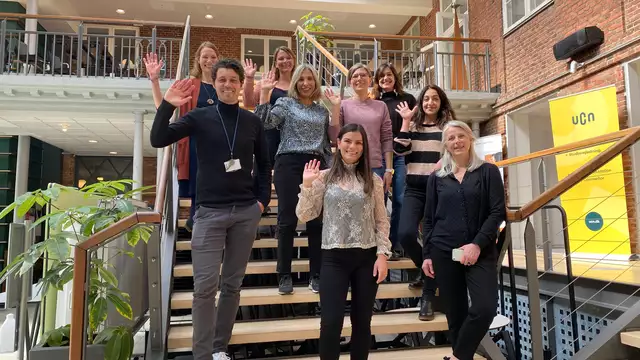
Arcada joins forces with external partners to increase local employment of international students and graduates
Published: 15.12.2022 / Research
The Erasmus+ Cooperation Partnership project “INTERLOCALITY - increased local employability of international degree students” is taking Arcada one step closer to the aim of increasing local employment and retention among international degree students and graduates, within the fields of engineering and business administration.
Attraction, retention, and inclusion of international students locally is a major strategic aim of many governments, regions, and higher education institutions (HEIs) globally. However, international students are often exposed to challenges such as fewer opportunities for employment and a tougher, and sometimes even hostile, environment in their host countries compared to local students.
The situation is not unique for Finland but is similar in several other countries. Therefore, Arcada has joined forces with University College of Northern Denmark , Fachhochschule Muenster , FONTYS University of Applied Sciences and SEND , to develop new tools and practices that can address the above mentioned challenges.
“We know that international students are highly ambitious individuals who challenge themselves by leaving their home countries and comfort zones in the pursuit of academic opportunities and future careers. As part of this challenge, they face a series of barriers when entering and living in the new country – cultural differences, economic difficulties, and in some cases even discrimination and racism.”, says Sandra Slotte, Head of Sustainable Career Support and Project Manager for INTERLOCALITY at Arcada.
Despite the acknowledgement of these issues, it is not within the power of HEIs to secure employment for their students. Instead, they rely completely on local companies and organisations being willing and able to recruit and retain international students and graduates.
“Here we see a widely acknowledged gap between higher education studies and local employment of international degree students. With INTERLOCALITY we aim to bridge that gap by involving all four main actors that actually influence the local employability of international degree students: international degree students themselves, HEI staff, local companies, and third sector actors. First out, we are now conducting over 100 interviews within the stakeholder groups in four of the project partner countries, to map their needs and viewpoints. The first reports will be available in spring 2023 and will form the basis for further developing the project.”, Slotte says.
The project is co-funded by the Erasmus+ program of the European Union. In Finland the project is supported by The Ministry of Education and Culture, The Ministry of Employment and Economic Affairs, Business Finland and Helsinki Region Chamber of Commerce.
At Arcada the INTERLOCALITY project is one of the main activities within the national Talent Boost programme .
For more information, please contact:
Sandra Slotte
Head of Sustainable Career Support
INTERLOCALITY Project Manager at Arcada


